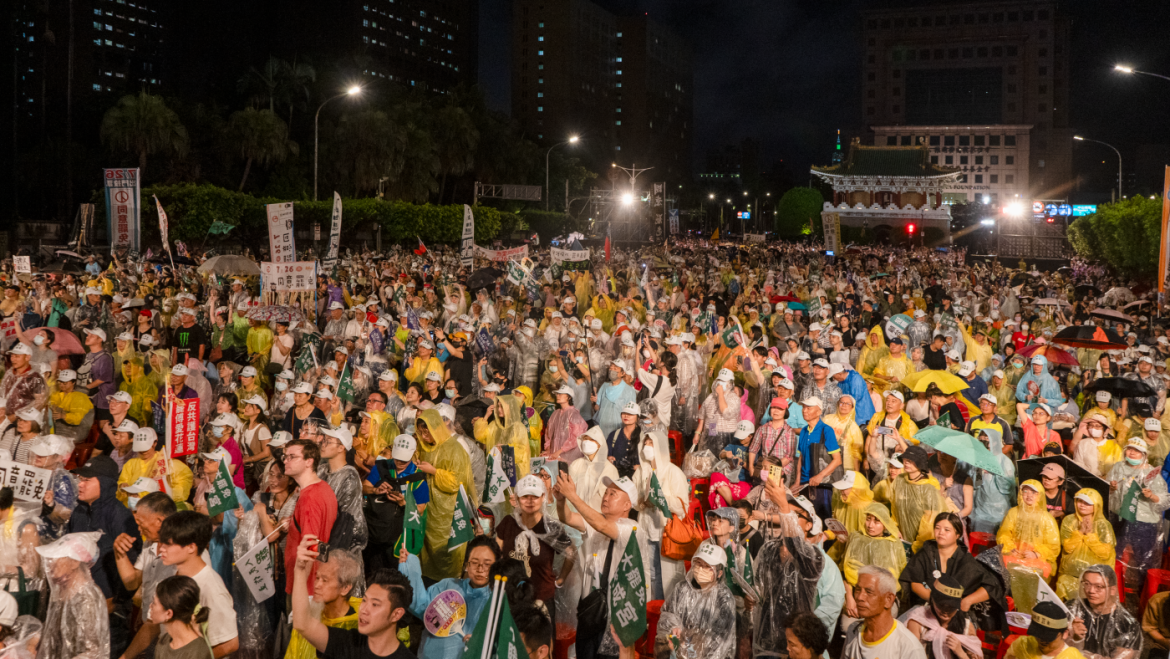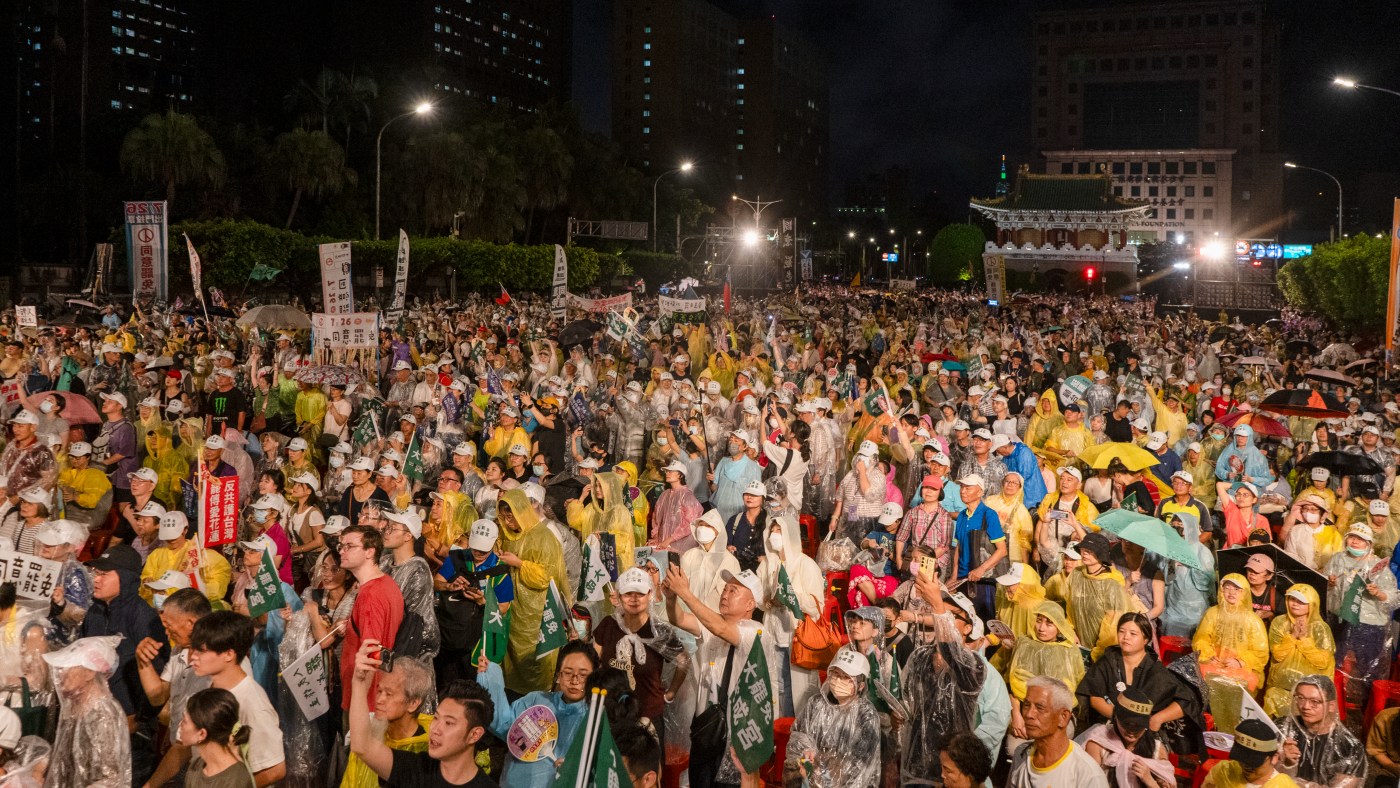The Persistence of Political Gridlock in Taiwan: An Analysis of the Failed Recall Effort
Introduction: A Nation at a Crossroads
Taiwan’s political landscape is a microcosm of the broader tensions that define its existence—a delicate balance between democracy and authoritarianism, sovereignty and reunification, and progress and stagnation. The recent failed recall effort targeting opposition lawmakers from the Nationalist Party (KMT) has laid bare the deep-seated divisions that plague the island’s political system. This analysis delves into the causes, consequences, and implications of this political impasse, exploring how Taiwan can navigate its current challenges to secure a stable and prosperous future.
A Divided Legislature and the Rise of Recall Efforts
The 2024 elections marked a significant shift in Taiwan’s political dynamics, with the Democratic Progressive Party (DPP) losing its legislative majority. This power shift resulted in a divided government, where the opposition KMT controls the legislature while the DPP, led by President Lai Ching-te, holds the executive branch. The ensuing political gridlock has been described as unprecedented, with legislative deadlocks and partisan animosity reaching new heights.
In response to this stalemate, a recall campaign was launched targeting 24 KMT lawmakers. The petitioners accused these lawmakers of undermining Taiwan’s national security and being overly sympathetic to China. This initiative was unprecedented in Taiwanese politics, as recall petitions had never before been mobilized on such a large scale. The recall effort was seen as a potential game-changer, a way to break the legislative deadlock and restore functionality to the government.
The Recall Vote: A Test of Political Will
The recall vote was framed as a critical test of political will, with both sides recognizing its potential to reshape the legislative landscape. Proponents of the recall argued that removing these lawmakers would enable the government to pass legislation more effectively and address pressing issues such as economic inequality, social welfare, and national defense. They framed the recall as a democratic exercise, a way for the people to hold their representatives accountable.
However, those targeted by the recall effort and their supporters viewed the campaign as an abuse of power. They argued that the recall was politically motivated, designed to silence dissenting voices and consolidate power in the hands of the DPP. The KMT lawmakers and their allies contended that the recall effort was an attempt to undermine the opposition’s legitimate role in the legislative process.
As tensions escalated, China entered the fray, rallying in support of the KMT lawmakers facing recall. Beijing’s involvement added another layer of complexity to the situation, further polarizing Taiwanese society and deepening the political divide. The recall vote became not just a domestic political issue but also a geopolitical one, with China’s actions serving as a reminder of the island’s precarious position in the international arena.
The Failure of the Recall and Its Implications
Despite months of campaigning and heightened political tensions, the recall effort ultimately failed. The KMT lawmakers retained their seats, preserving their controlling majority in the legislature. This outcome has several significant implications for Taiwan’s political future.
First, the failure of the recall effort reinforces the existing political gridlock. With the opposition maintaining control of the legislature, the government will continue to struggle to pass legislation and address critical issues. This stalemate risks undermining public confidence in the political system and exacerbating the sense of disillusionment that many Taiwanese feel toward their government.
Second, the recall’s failure deepens the mutual distrust that plagues intra-party politics in Taiwan. The bitter campaign has left lasting scars, making cooperation between the DPP and the KMT even more challenging. This lack of trust hinders the development of a coherent and unified strategy to deal with the geopolitical challenges that Taiwan faces.
Third, the recall effort has highlighted the growing influence of China in Taiwanese politics. Beijing’s involvement in the recall campaign serves as a stark reminder of the island’s vulnerability to external interference. It also underscores the need for Taiwan to develop a more robust and independent political identity, one that is not unduly influenced by external actors.
Echoes of the Past: The Sunflower Movement
The current political strife in Taiwan evokes memories of the Sunflower Movement, a series of protests that took place in 2014 in response to a trade agreement with China. Like the present situation, the Sunflower Movement was fueled by concerns about Taiwan’s sovereignty and its relationship with China. The protests highlighted the deep divisions within Taiwanese society and the challenges of navigating its complex relationship with its powerful neighbor.
The Sunflower Movement was a watershed moment in Taiwanese politics, galvanizing a new generation of activists and politicians who were committed to defending Taiwan’s democracy and sovereignty. However, it also exposed the deep-seated divisions that exist within Taiwanese society, divisions that continue to shape the island’s political landscape today.
The failed recall effort can be seen as a continuation of the tensions that emerged during the Sunflower Movement. Both events reflect the ongoing struggle to define Taiwan’s political identity and its relationship with China. They also highlight the challenges of maintaining a democratic system in the face of external pressures and internal divisions.
The Challenge of Governing in a Divided Nation
President Lai Ching-te now faces the daunting task of governing a nation deeply divided and grappling with significant political gridlock. To overcome these challenges, he must find ways to bridge the divide between the DPP and the opposition, foster greater cooperation in the legislature, and address the concerns of all segments of Taiwanese society.
One potential avenue for progress is through bipartisan dialogue and cooperation. While the political climate is currently hostile, there is still room for compromise and collaboration on issues of mutual interest. For example, both the DPP and the KMT share a commitment to Taiwan’s economic prosperity and national security. By focusing on these common goals, the two parties can begin to rebuild trust and work together to address the challenges facing the island.
Another critical step is to engage with civil society and the broader public. The failed recall effort has highlighted the growing disillusionment among many Taiwanese with their political system. To address this, President Lai and other political leaders must make a concerted effort to listen to the concerns of the public and involve them in the political process. This could involve holding town hall meetings, conducting public consultations, and promoting greater transparency and accountability in government.
Navigating Geopolitical Challenges
Taiwan’s political challenges are further complicated by the looming presence of China. Beijing views Taiwan as a renegade province and has not ruled out the use of force to achieve reunification. As Taiwan navigates its internal political dynamics, it must also remain vigilant in the face of external threats. Crafting a coherent and unified strategy to deal with these mounting geopolitical challenges requires overcoming the existing political gridlock and fostering a sense of national unity.
One way to achieve this is by developing a clear and consistent policy toward China. While Taiwan must remain firm in its defense of its sovereignty and democracy, it must also engage in constructive dialogue with Beijing to manage their differences and prevent escalation. This could involve exploring confidence-building measures, such as military transparency and crisis management mechanisms, to reduce the risk of conflict.
At the same time, Taiwan must continue to strengthen its international ties and seek support from like-minded democracies. By deepening its relationships with countries such as the United States, Japan, and the European Union, Taiwan can enhance its security and economic resilience. It can also gain valuable allies in its efforts to defend its democracy and sovereignty.
A Future Uncertain
The failure of the recall effort underscores the deep-seated political divisions within Taiwan and the challenges of overcoming legislative gridlock. As Taiwan moves forward, it must find ways to bridge these divides, foster greater cooperation, and address the pressing issues facing the nation. Only then can it hope to secure its future and navigate the complex geopolitical landscape that lies ahead.
A Fork in the Road: Unity or Division
Taiwan stands at a crucial juncture. The path ahead depends on whether its political leaders can rise above partisan divisions and work together to address the challenges facing the island. Failure to do so risks further entrenching the gridlock, undermining Taiwan’s ability to respond effectively to external threats, and ultimately jeopardizing its future. The time for unity and decisive action is now.
The failed recall effort serves as a wake-up call for Taiwan’s political leaders and its people. It is a reminder of the fragility of democracy and the importance of safeguarding it. It is also a call to action, a challenge to rise above the divisions that threaten to tear the nation apart and work together to build a brighter future for all Taiwanese.
In the words of the late Taiwanese democracy activist and former president Lee Teng-hui, “Democracy is not a destination, but a journey.” Taiwan’s journey is far from over, and the challenges it faces are significant. But with courage, determination, and a shared commitment to democracy and sovereignty, Taiwan can overcome these challenges and secure a prosperous and peaceful future for generations to come.


